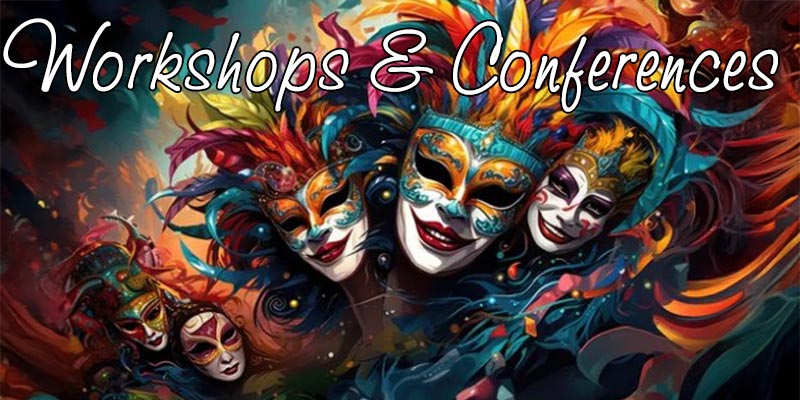
The site for writers of all genre, and the readers who love them. Find what you want to know.
Agents: Knowing When To Hold One and When To Fold

By: Shirley Jump
Agents can be a wonderful thing, IF they are working for you and with you. I have negotiated deals with agents, without agents, and have fired agents who didn’t seem to be on the same page as I was. Overall, I believe having an agent makes things happen faster, but they are certainly no guarantee for success.
When Do You Need One?
In short, when you have something saleable. When you have ten partials stacked up under your bed, but no complete novels, or the germ of an idea for a non-fiction book, but no proposal ready, you don’t need an agent. Agents only work with what they can sell. They’re sort of like car dealers that way — they can’t sell just an engine or four tires. They need the whole vehicle, and a good condition one at that, in order to make a sale.
Yes, an agent does take a percentage of what they sell for you. That’s how they make their money. For some new writers, giving away 15% of their advance and royalties isn’t a possibility. Face it, many of us would be starving if we had to support ourselves on our writing income. However, there are many occasions when an agent can get you a higher advance or a better royalty rate, thereby paying for their cut. Weigh this part of the equation before automatically ruling out an agent.
How Do You Get One?
The same way you get an editor. Luck, perseverance, and good writing. Get the Jeff Herman book, WRITER’S GUIDE TO BOOK EDITORS, PUBLISHER AND LITERARY AGENTS.
- Scan the list at Science Fiction Fantasy Writers of America, http://www.sfwa.org/for-authors/writer-beware/. Join a professional organization and find out who is reputable and who isn’t. Be informed before you start sending out queries.
- Make out a top ten list and query them first. Agents get back to you, in general, much faster than editors, so you should have an answer within a few weeks. Follow the rules — if they say send only a query, do exactly that. Don’t try to get fancy or creative or you risk ticking the agent off.
- Also, network by attending writers’ conferences and joining writer lists. My friend and I once shared a cab with a top agent, who later requested a complete manuscript from my friend. It’s a small world, and you never know where an opportunity might pop up.
- Don’t give up too easily. Once that list of ten is exhausted, create a new list of ten. If it doesn’t work out, keep pursuing your writing career. Should you get an offer from a publishing house, then you can call the agents on your list. With a sale in hand, you’re more valuable to them.
When Do You Get Rid Of One?
When he or she no longer shares your vision for your work. I severed the relationship with my first agent when it became apparent that she had a different idea of where my career should go than I did. She wasn’t a terrible agent; she just didn’t mesh with me. An agent is like a spouse (although trying to get the agent to do the dishes doesn’t work too well). You and she should get along most of the time, have the same path in mind for your future, and yet expect to squabble once in a while.
Don’t fire an agent simply for not returning a phone call or e-mail fast enough. Agents are busy people — remember, they’re out there hopefully selling your work. Giving you the 100th update on where your manuscript stands with an editor is not always priority A. Sometimes, the agent doesn’t know and isn’t going to ask because he doesn’t want to risk ticking off the editor. It’s no secret that the rest of the publishing world exists on a tortuously slow clock compared to the one writers go by.
Agents can be a great addition to a career, and also a hindrance. In order to find the one who works best for you, ask questions. Talk to other clients, former and current. Don’t be afraid to call the Better Business Bureau in their area or to ask other writers. And don’t take the first agent who comes calling, just because he called. This is YOUR career and you want it to be in good hands.
AGENTS & EDITORS
- Agents: Knowing When To Hold One and When To Fold
- Copyright Primer, Know Your Rights
- Getting Offers from Multiple Literary Agents
- Landing An Agent Elements Of A Winning Query
- Literary Agents List
- Preditors and Editors
- Publishing, Writing Terms, Acronyms
- Tips for a Successful Editor Appointment
- Want More? Here’s How to Get It
- What NOT to Do When Beginning Your Novel
- Windup for the (Story) Pitch
- Write the Perfect Book Proposal
CALLS FOR SUBMISSIONS
![]()
CALLS FOR SUBMISSIONS MAIN PAGE
- 2026 FEB Calls for Submissions
- 2026 JAN Calls for Submissions
- 2025 DEC Calls for Submissions
- 2025 NOV Calls for Submissions
- 2025 OCT Calls for Submissions
- 2025 SEP Calls for Submission
- 2025 AUG Calls for Submission
- 2025 JUL Calls for Submission
- 2025 JUN Calls for Submission
- 2025 MAY Calls for Submission
- 2025 APR Calls for Submission
- 2025 MAR Calls for Submission
- 2025 FEB Calls for Submission
CHARACTERIZATION
CONFLICT
DIALOGUE
GRAMMAR & FORMATTING
![]()
GRAMMAR & FORMATTING MAIN PAGE
- Achieving 250 Words / 25 Lines Per Page
- And Sammy, Too? Oh, No!
- Changing Double Hyphens to EM Dashes in Word
- Edit Easier
- High Hopes–Avoiding Common Mistakes
- Misused Words
- Navigating In Your Novel
- Proofreaders Marks
- Research Links
- Rules for Writers
- Slang and Jargon Souces
- Tightening Your Manuscript and Trimming the Word Count
JOBS / MARKETS
- 3 Ways to Make Your Non-Fiction Article Pitch Stand Out
- 35 Online Work Ideas to Earn Good Money Whilst Studying
- An Interview with Holly Ambrose
- Beyond the Basics
- Copyright Primer, Know Your Rights
- Finding Markets Fiction and Nonfiction
- Freelance Writing 101
- Getting Offers from Multiple Literary Agents
- How To Market Your Book After You’ve Written It
- How to Write a Novel Synopsis
- How To Write Your Own Press Releases
- Magazine Links
- Making Money As a Corporate Freelancer
- Market News–All Genres
- Need a Clip? Open a Newspaper
- Newspaper Writing Resources
- Publisher’s Websites
- Selling to Children’s Markets
- Submitting to UK Markets
- Syndication 101
- the Power of the Press
- To Specialize, or Not to Specialize?
- Ultimate Guide to Being a Freelancer 2025 Update
- What Are Your Chances of Getting Published?
- Why Article Writing Should Be A Part Of Your Career Development Strategy
- Why E-Books?
- Write the Perfect Book Proposal
- Write Your Way to $1000 a Month
- Youth Writing Markets
PLOTTING
- 3 Ways to Know When to End Your Chapters
- 7 Excellent Plotting Tips from Agatha Christie
- 7 Ways to Add Great Subplots to Your Novel
- 8 Best Writing Tips to Become a Best Storyteller
- Does Your Plot Need a Subplot?
- Love to Write: Here Is How You Can Build Your Career
- Slang and Jargon Souces
- The All Purpose Plot
- Turning Points and Plot Points in Storytelling
- What NOT to Do When Beginning Your Novel
- Writing the Novel by the Numbers
POINT OF VIEW
QUERIES & PROPOSALS
- Agents: Knowing When To Hold One and When To Fold
- Getting Offers from Multiple Literary Agents
- How to Write a Novel Synopsis
- Landing An Agent Elements Of A Winning Query
- Path to Self-Publishing Success
- Publisher’s Websites
- Publishing, Writing Terms, Acronyms
- Science & Science Fiction Writing Organizations
- Submission Tracking
- Surviving a Book Proposal
- Windup for the (Story) Pitch
- Write the Perfect Book Proposal
- Writing a Synopsis & Query Letter
SUBMISSIONS
- Agents: Knowing When To Hold One and When To Fold
- An Interview with Jack Fisher
- Copyright Primer, Know Your Rights
- EBooks-Fears to Possibilities
- How to Write a Novel Synopsis
- Literary Agents List
- Path to Self-Publishing Success
- Publisher’s Websites
- Publishing, Writing Terms, Acronyms
- Science & Science Fiction Writing Organizations
- Selling to Children’s Markets
- Submission Tracking
- Surviving a Book Proposal
- What Are Your Chances of Getting Published?
- Write Your Way to $1000 a Month
- Writing a Synopsis & Query Letter
- Youth Writing Markets
SYNOPSIS
TIP SHEETS & GUIDELINES
![]()
TIP SHEETS & GUIDELINES MAIN PAGE
- Achieving 250 Words / 25 Lines Per Page
- Changing Double Hyphens to EM Dashes in Word
- Copyright Primer, Know Your Rights
- How To Write Your Own Press Releases
- Knowing and Finding Your Voice
- Plan for Success
- Publisher’s Websites
- Science & Science Fiction Writing Organizations
- What NOT to Do When Beginning Your Novel
- Why E-Books?
- Working with a Critique Group
WORKSHOPS & CONFERENCES
WRITING CONTESTS
![]()
ABOUT WRITING CONTESTS
- A Guide to Assessing Writing Contests
- Writer’s Conferences Do You Really Need To Attend?
- Writing Groups List
- 2026 FEB Writing Contests
- 2026 JAN Writing Contests
- 2025 DEC Writing Contests
- 2025 NOV Writing Contests
- 2025 OCT Writing Contests
- 2025 SEP Writing Contests
- 2025 AUG Writing Contests
- 2025 JUL Writing Contests
- 2025 JUN Writing Contests
- 2025 MAY Writing Contests
- 2025 APR Writing Contests
- 2025 MAR Writing Contests





